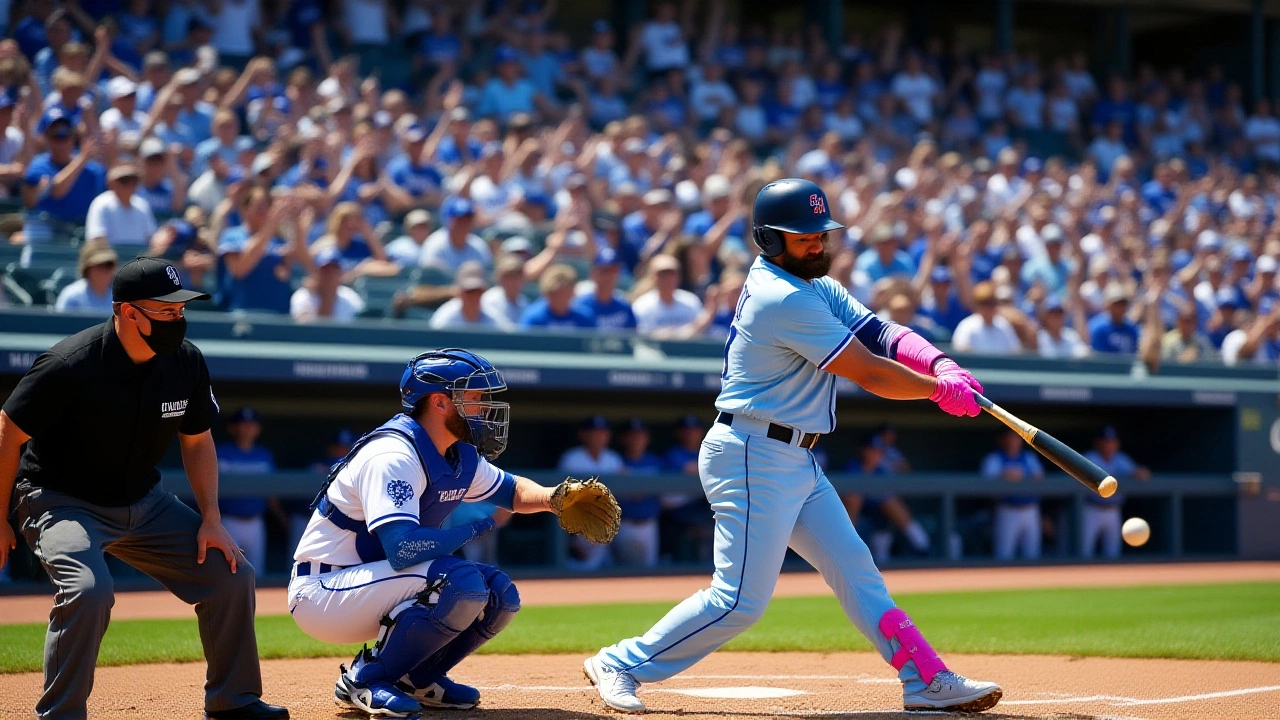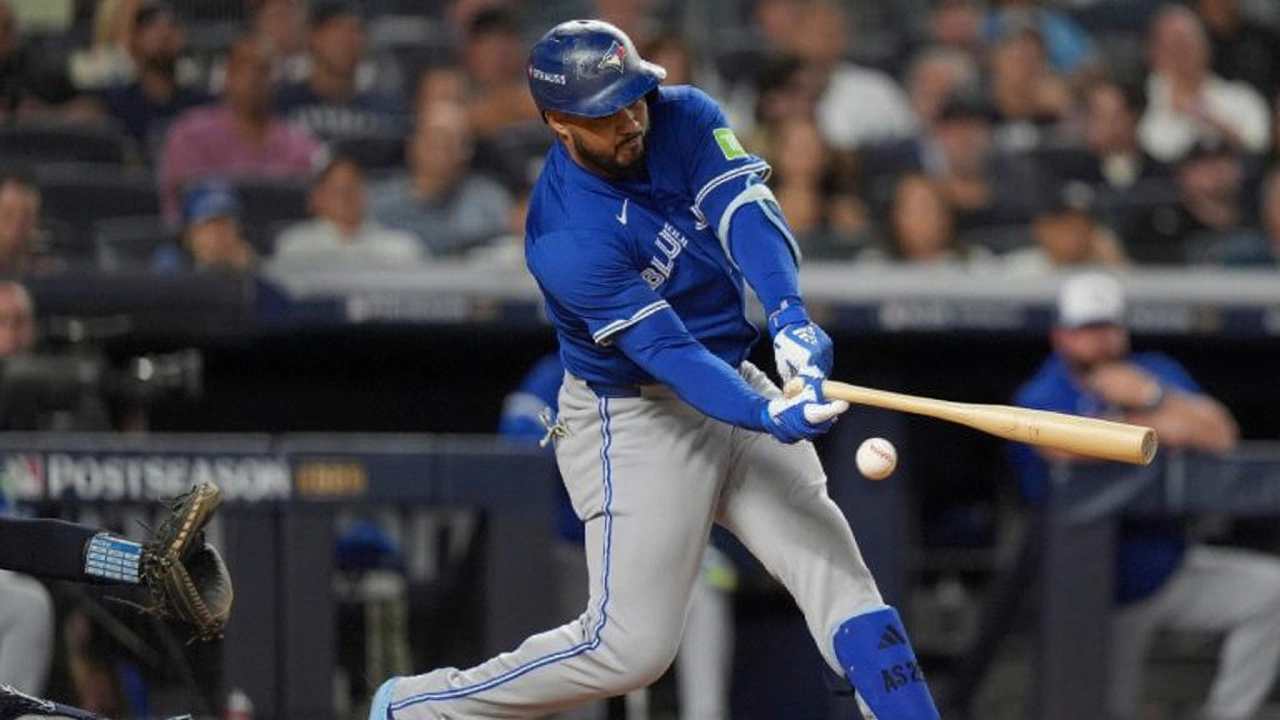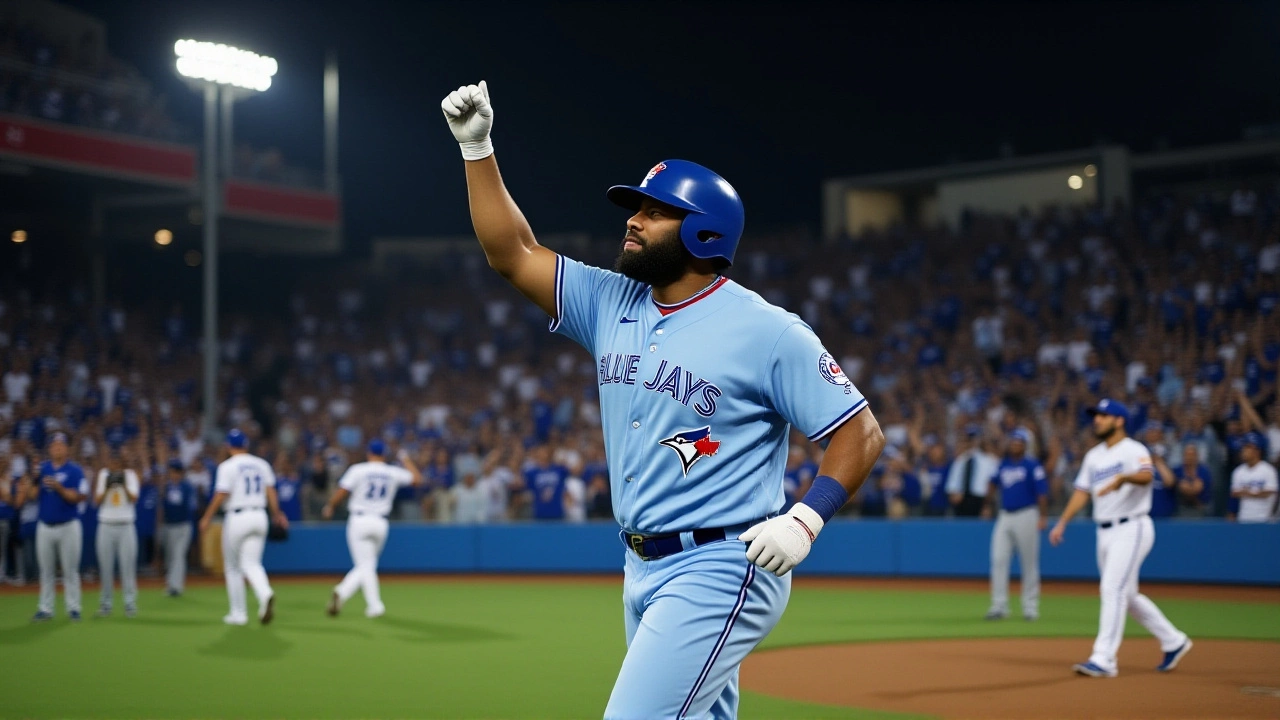The Toronto Blue Jays stunned the baseball world on Wednesday, October 29, 2025, with a 6-1 victory over the Los Angeles Dodgers in Game 5 of the World SeriesDodger Stadium, seizing a 3-2 series lead and putting them one win away from their first championship since 1993. The game’s defining moment wasn’t a grand slam or a diving catch—it was a 21-year-old rookie named Trey Yesavage, who threw seven masterful innings, struck out 12 batters, and allowed just one hit in the fifth inning. No rookie in World Series history had ever done that. Not even close.
Back-to-Back Bombs Set the Tone
The first pitch of the game? A fastball from Blake Snell, the Dodgers’ ace, to Davis Schneider, a 24-year-old Canadian utility player from London, Ontario, who’d started just 17 games all season. He launched it over the right-field fence. Then, without breaking stride, Vladimir Guerrero Jr., the 2024 AL MVP runner-up, crushed the next pitch into the same seats. Back-to-back home runs. In the World Series. On the road. Against the best pitching staff in baseball. The crowd at Dodger Stadium fell silent. Even the scoreboard seemed to pause.
Snell never recovered. He threw 15 pitches. Recorded zero outs. Dodgers manager Dave Roberts pulled him before the first out was made. It was the fastest exit of a starting pitcher in World Series history under those circumstances. The Blue Jays added three more runs in the third—two on a double by Bo Bichette, one on a sac fly by George Springer—and suddenly, it was 5-0. The Dodgers’ lone run came in the fifth, a solo shot by Oscar Hernandez, a former Blue Jay who now wears Dodger blue. He’s the only one who knows what it feels like to be on both sides of this rivalry.
Yesavage’s Miracle on the Mound
Here’s the twist: Trey Yesavage didn’t even start the season in Triple-A. He was in High-A last April. Six months ago, he was pitching in front of 200 fans in Dunedin, Florida. Now, he was standing on the mound at Dodger Stadium, with 54,000 people on their feet, trying to silence him. He didn’t walk a single batter. He threw 92 pitches—67 for strikes. His slider was unhittable. His fastball touched 98 mph in the seventh. He struck out the side in the sixth, including Mookie Betts and Freddie Freeman on breaking balls that looked like they were thrown from another dimension.
ESPN’s broadcast cut to a shot of his parents in the stands—tears streaming down their faces. His father, a retired firefighter from Hamilton, Ontario, whispered to his wife, "I told him not to quit baseball when he broke his wrist in high school." Yesavage didn’t just pitch like a veteran. He pitched like a man who’d been waiting his whole life for this moment.

The Bullpen Holds the Line
When Jeff Hoffman came in for the ninth, the Blue Jays were an out away from history. The 32-year-old Canadian closer from Welland, Ontario, had saved 38 games this season. He faced Oscar Hernandez again—the same man who’d homered earlier. Two strikes. A cutter low and away. Hernandez swung. Pop fly to shallow center. Travis Jankowski caught it. Game over.
It was the first time since 2004 that a team had won a World Series game on the road with a rookie starter pitching seven or more innings and allowing one run or fewer. The last time? Curt Schilling. And he was 27.
What’s at Stake in Game 6
The series shifts to Rogers Centre in Toronto on Friday, October 31, 2025. The Blue Jays, who finished the regular season 94-68, are one win away from their third World Series title—and first in 32 years. The Dodgers, 93-69 and seeking their eighth championship, are staring at their third loss in the past four World Series appearances. They’ve lost Game 6 before—in 2017, 2020, and 2023. Each time, they came back. But this time, they’re without their ace. And their bullpen is exhausted.
MLB Commissioner Robert D. Manfred Jr. watched from the luxury box, nodding as the final out was recorded. He’s overseen a decade of baseball’s evolution—expanded playoffs, pitch clocks, digital streaming. But nothing, he later admitted to reporters, compared to watching a kid from Ontario throw like a legend on baseball’s biggest stage.

Why This Matters Beyond the Box Score
This wasn’t just a win. It was a generational shift. The Blue Jays, long seen as a team that spent big but couldn’t close, are now led by homegrown talent—Yesavage, Schneider, Hoffman—all Canadian. Their roster includes 11 players born in Canada, the most in MLB history. Meanwhile, the Dodgers, despite their payroll and pedigree, are still searching for that elusive championship spark. The difference? Toronto’s young core didn’t just show up. They owned the moment.
EssilorUSA, the presenting sponsor of the official highlights, released a 12-minute video at 12:20:48 AM UTC on October 30. It’s already been viewed over 18 million times. The most-watched clip? Yesavage’s 12th strikeout. The caption: "This kid doesn’t know he’s supposed to be nervous."
Frequently Asked Questions
How did Trey Yesavage go from High-A to World Series starter in six months?
Yesavage was drafted in the 12th round in 2023 and spent most of 2024 in High-A Dunedin. He posted a 1.98 ERA in 13 starts there, then jumped to Double-A in August and dominated. The Blue Jays promoted him to Triple-A in September, and after just five starts, he was named the starter for Game 5 of the World Series—a rare move even for elite prospects. His elite spin rate on his slider and command under pressure made him the obvious choice.
What’s the significance of Canadian players leading the Blue Jays to the brink of a title?
The Blue Jays now have 11 Canadian-born players on their 26-man roster, the highest total in MLB history. Six of them started Game 5, including Yesavage, Hoffman, and Schneider. Canada hasn’t had a World Series champion since 1993, and this team is built around homegrown talent, not big-money free agents. It’s a statement about player development—and a source of national pride.
Why was Blake Snell pulled after just 15 pitches?
Snell, a former Cy Young winner, gave up two home runs on the first two pitches he threw. He had zero strikeouts, zero groundouts, and his fastball was averaging 91 mph—down nearly 3 mph from his season average. Dodgers manager Dave Roberts said afterward that Snell "looked lost," and with a 5-0 deficit and no momentum, there was no reason to let him continue. It was the fastest exit of a starter in World Series history under those conditions.
What happens if the Dodgers win Game 6?
If the Dodgers win Game 6 in Toronto, the series returns to Los Angeles for a decisive Game 7 on November 2. But their pitching depth is thin—Julio Urías is on short rest, and Tony Gonsolin hasn’t pitched since Game 3. The Blue Jays, meanwhile, would likely start Yusei Kikuchi, who’s been dominant in relief. The odds shift sharply in Toronto’s favor if it goes to Game 7.
Has any rookie ever won a World Series game with 12 strikeouts before?
No. The previous World Series rookie strikeout record was 10, set by Fernando Valenzuela in 1981. Yesavage broke it with 12, and he did it on the road against a lineup featuring Mookie Betts, Freddie Freeman, and Shohei Ohtani. He also became the first rookie to throw seven innings with zero walks in a World Series game since 1958. His performance ranks among the greatest pitching outings in postseason history.
When was the last time the Blue Jays won a World Series?
The Toronto Blue Jays last won the World Series in 1993, defeating the Philadelphia Phillies in six games. Joe Carter’s walk-off home run in Game 6 remains one of the most iconic moments in MLB history. Since then, they’ve reached the playoffs 10 times but never advanced past the ALCS—until now. A win in Game 6 would end a 32-year drought and cement this team as one of the greatest in franchise history.
